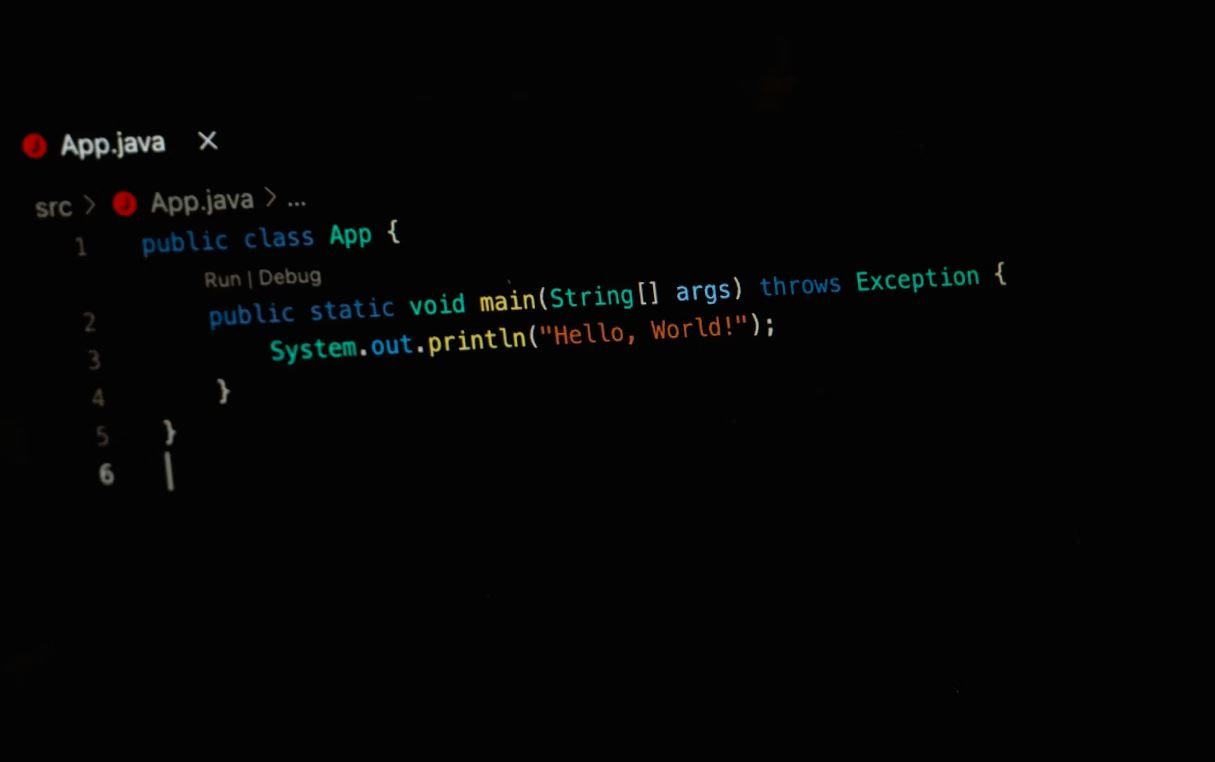Application Manager Job Description
Are you interested in a career as an Application Manager? This article will provide you with an overview of the responsibilities, qualifications, and skills required for this role.
Key Takeaways:
- The Application Manager oversees the development, implementation, and maintenance of software applications.
- They are responsible for managing a team of developers and ensuring the applications meet user requirements and business objectives.
- Strong technical skills, leadership abilities, and excellent communication are essential for success in this role.
An Application Manager is responsible for leading a team of developers in the design, development, implementation, and maintenance of software applications. They collaborate with stakeholders to identify user requirements and business objectives to deliver efficient and high-quality applications.
With the increasing demand for digital transformation, Application Managers play a crucial role in organizations to ensure smooth operations and meet evolving business needs.
The duties of an Application Manager include:
- Managing a team of developers, including recruitment, training, and performance evaluation.
- Collaborating with stakeholders to define and analyze user requirements.
- Overseeing the design, development, and testing of software applications.
- Ensuring applications are delivered on time and within budget.
- Maintaining and troubleshooting existing applications to ensure optimal performance.
- Implementing security measures to protect application data.
- Monitoring and evaluating application performance and making necessary improvements.
- Providing technical guidance and support to the development team.
Application Managers act as the bridge between technical and business teams, ensuring alignment and efficient delivery of applications.
Qualifications and Skills:
To be successful as an Application Manager, the following qualifications and skills are required:
| Qualifications | Skills |
|---|---|
|
|
An Application Manager should possess a combination of technical expertise, leadership, and communication skills to drive successful application development projects.
Salary and Job Outlook:
The salary range for an Application Manager varies depending on factors such as experience, location, and the size of the organization. According to data from the Bureau of Labor Statistics, the median annual wage for Computer and Information Systems Managers, which includes Application Managers, was $151,150 in May 2020.
Job opportunities for Application Managers are expected to grow as organizations continue to invest in technology and digital transformation initiatives.
| Location | Median Annual Wage (May 2020) |
|---|---|
| New York | $172,950 |
| California | $186,480 |
| Texas | $139,270 |
Conclusion:
In conclusion, an Application Manager plays a critical role in overseeing the development, implementation, and maintenance of software applications. Key requirements for this position include technical expertise, leadership abilities, and strong communication skills.
As technology continues to advance, the demand for Application Managers is expected to grow. If you are interested in a challenging and rewarding career, consider becoming an Application Manager.

Common Misconceptions
Misconception #1: Application Manager is solely responsible for developing applications
One common misconception about the Application Manager job description is that they are solely responsible for developing applications. While it is true that Application Managers work closely with development teams, their primary role is to oversee the overall management and performance of applications throughout their lifecycle.
- Application Managers collaborate with developers, but are not responsible for coding.
- They focus on ensuring the smooth operation of applications rather than creating them from scratch.
- They work closely with stakeholders to align application functionality with strategic goals.
Misconception #2: Application Manager is the same as IT Project Manager
Another misconception is that Application Managers and IT Project Managers have the same job responsibilities. While they both play a crucial role in managing technology projects, they have different focuses and areas of expertise.
- Application Managers focus on applications and their performance, while IT Project Managers handle broader technology projects.
- Application Managers work on the operational side of applications, while IT Project Managers oversee the planning and execution of technology initiatives.
- The skill set required for an Application Manager may vary from that of an IT Project Manager.
Misconception #3: Application Manager only deals with technical aspects
Many people mistakenly believe that Application Managers only deal with the technical aspects of applications. While technical expertise is essential, a significant part of an Application Manager’s role involves working with various stakeholders to understand their requirements and align them with business objectives.
- Application Managers collaborate with business leaders to identify opportunities for process improvement through application enhancements.
- They communicate with end-users to gather feedback and ensure the application meets their needs.
- They are responsible for managing vendor relationships and ensuring the applications align with contractual obligations.
Misconception #4: Application Manager’s job is completed after application deployment
Another misconception is that an Application Manager’s job is completed once an application is deployed. However, the role extends beyond deployment, and Application Managers continue to monitor and optimize applications to ensure their ongoing performance and effectiveness.
- Application Managers regularly review application performance metrics and conduct analysis to identify areas for improvement.
- They collaborate with developers to implement updates and bug fixes to enhance application functionality.
- They stay updated on industry trends and technologies to ensure applications remain current and competitive.
Misconception #5: Any IT professional can become an Application Manager
Lastly, some people mistakenly believe that any IT professional can become an Application Manager without specific qualifications or experience. However, being an effective Application Manager requires a unique skill set and experience in managing applications.
- Application Managers need a solid understanding of software development methodologies and IT infrastructure.
- They should possess strong leadership and communication skills to collaborate with cross-functional teams and stakeholders.
- Experience in project management, application performance monitoring, and vendor management is often expected for Application Manager roles.

Table 1: Job Title Comparison in the IT Industry
Application Managers are a vital part of the IT industry. With their expertise in managing and troubleshooting applications, they are in high demand. This table showcases how the job title and average salary of an Application Manager compares to other roles in the IT sector.
Job Title | Average Salary (USD)
———————————–
Application Manager | $110,000
Software Engineer | $105,000
Systems Analyst | $95,000
Database Administrator | $90,000
Network Administrator | $85,000
Table 2: Required Education and Experience
A successful Application Manager possesses a specific skill set and educational background. This table highlights the minimum education and experience required for this role.
Education | Experience
——————————-
Bachelor’s Degree | 3 years
Master’s Degree | 5 years
Certifications | 7 years
Table 3: Technical Skills
Application Managers excel in various technical skills, enabling them to effectively oversee and troubleshoot applications. This table presents the key technical skills that an Application Manager should possess.
Technical Skills
——————————-
Programming languages (Java, C++, Python)
Database management (SQL)
Software development life cycle (SDLC)
Operating systems (Windows, Linux)
Network administration
Web technologies (HTML, CSS, JavaScript)
Table 4: Responsibilities
Application Managers have diverse responsibilities, ensuring the smooth operation of applications within an organization. This table highlights the core responsibilities of an Application Manager.
Responsibilities
——————————-
Managing application development projects
Coordinating with software engineers and QA teams
Overseeing application deployment and updates
Identifying and resolving technical issues
Ensuring data security and compliance
Providing technical support to end-users
Table 5: Soft Skills
Apart from technical expertise, an effective Application Manager also possesses essential soft skills. This table showcases the key soft skills that contribute to the success of an Application Manager.
Soft Skills
——————————-
Leadership
Communication
Problem-solving
Time management
Collaboration
Analytical thinking
Table 6: Industry Demand
Application Managers are in high demand across various industries. This table demonstrates the top industries that frequently hire Application Managers.
Industry Demand
——————————-
Information Technology
Finance and Banking
Healthcare
Telecommunications
E-commerce
Table 7: Growth Opportunities
The career growth opportunities for Application Managers are promising. This table sheds light on potential career paths for individuals in this role.
Career Paths
——————————-
IT Project Manager
IT Director
IT Consultant
Senior Application Manager
Chief Technology Officer (CTO)
Table 8: Salary Range by Experience
As an Application Manager gains experience, their salary range tends to increase. This table exhibits the average salary range for Application Managers at different stages of their career.
Experience (years) | Salary Range (USD)
—————————————-
1-3 | $80,000 – $100,000
4-6 | $90,000 – $120,000
7+ | $110,000 – $140,000
Table 9: Top Skills in Demand
In the dynamic IT industry, certain skills are highly sought after. This table showcases the top skills that employers frequently seek in Application Manager candidates.
Top Skills in Demand
——————————-
Cybersecurity
Cloud computing
Big data analytics
Mobile application development
Agile project management
Table 10: Performance Metrics
To evaluate the effectiveness of an Application Manager, various performance metrics are considered. This table provides an overview of the key performance indicators used in assessing an Application Manager’s performance.
Performance Metrics
——————————-
Application availability
Application response time
Number of resolved issues per month
Customer satisfaction rating
Project completion rate
Conclusion:
As technology continues to advance rapidly, the role of an Application Manager becomes increasingly crucial. The diverse responsibilities, technical skills, and soft skills required make it a challenging yet rewarding career. With high demand across multiple industries, ample growth opportunities, and competitive salaries, pursuing a career as an Application Manager can lead to a fulfilling and prosperous future.
Frequently Asked Questions
What are the key responsibilities of an Application Manager?
An Application Manager is responsible for overseeing the development, installation, and maintenance of software applications. They manage a team of developers, ensure efficient application performance, troubleshoot technical issues, and work closely with stakeholders to define and achieve project goals.
What qualifications are typically required for an Application Manager?
Typically, an Application Manager is required to have a bachelor’s degree in computer science or a related field. They should have several years of experience in software development, project management, and leadership roles. Strong analytical, problem-solving, and communication skills are also essential for this position.
What are the main skills an Application Manager should possess?
An Application Manager should have a strong understanding of software development methodologies and technologies. They should also be proficient in project management, team leadership, and collaboration. Additionally, having knowledge of business processes and a good understanding of user experience design is beneficial.
What are the typical day-to-day activities of an Application Manager?
An Application Manager’s day-to-day activities may include leading the development team, coordinating with stakeholders, reviewing and approving project deliverables, analyzing system performance, identifying and resolving technical issues, and staying updated on industry trends and advancements.
What are the career prospects for an Application Manager?
The career prospects for an Application Manager are promising. With the increasing reliance on software applications in various industries, there is a growing demand for skilled professionals in this role. Experienced Application Managers can progress to higher-level managerial positions within organizations.
How does an Application Manager contribute to project success?
An Application Manager plays a crucial role in project success by ensuring the efficient and timely completion of software development projects. They provide strategic direction, allocate resources effectively, mitigate risks, and ensure that the delivered applications meet the required standards and specifications.
What are the challenges faced by an Application Manager?
Some of the common challenges faced by Application Managers include managing tight deadlines, handling changing project requirements, resolving conflicts within the development team, addressing technical issues, and staying updated with rapidly advancing technologies.
How does an Application Manager collaborate with other teams and stakeholders?
An Application Manager collaborates with various teams and stakeholders throughout the software development lifecycle. They communicate project updates, gather requirements, provide technical guidance to developers, coordinate testing and deployment activities, and ensure effective communication channels are established.
What are the qualities of a successful Application Manager?
A successful Application Manager possesses strong leadership skills, is proactive, adaptable, and possesses excellent problem-solving abilities. They have the ability to motivate and inspire their team, communicate effectively with stakeholders, and effectively manage resources to achieve project goals.
What are the major industry trends impacting the role of an Application Manager?
Some major industry trends impacting the role of an Application Manager include the increasing adoption of cloud-based technologies, the rise of mobile applications, the integration of artificial intelligence and machine learning, and the growing importance of data security and privacy regulations.





